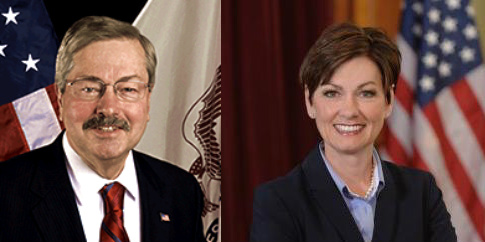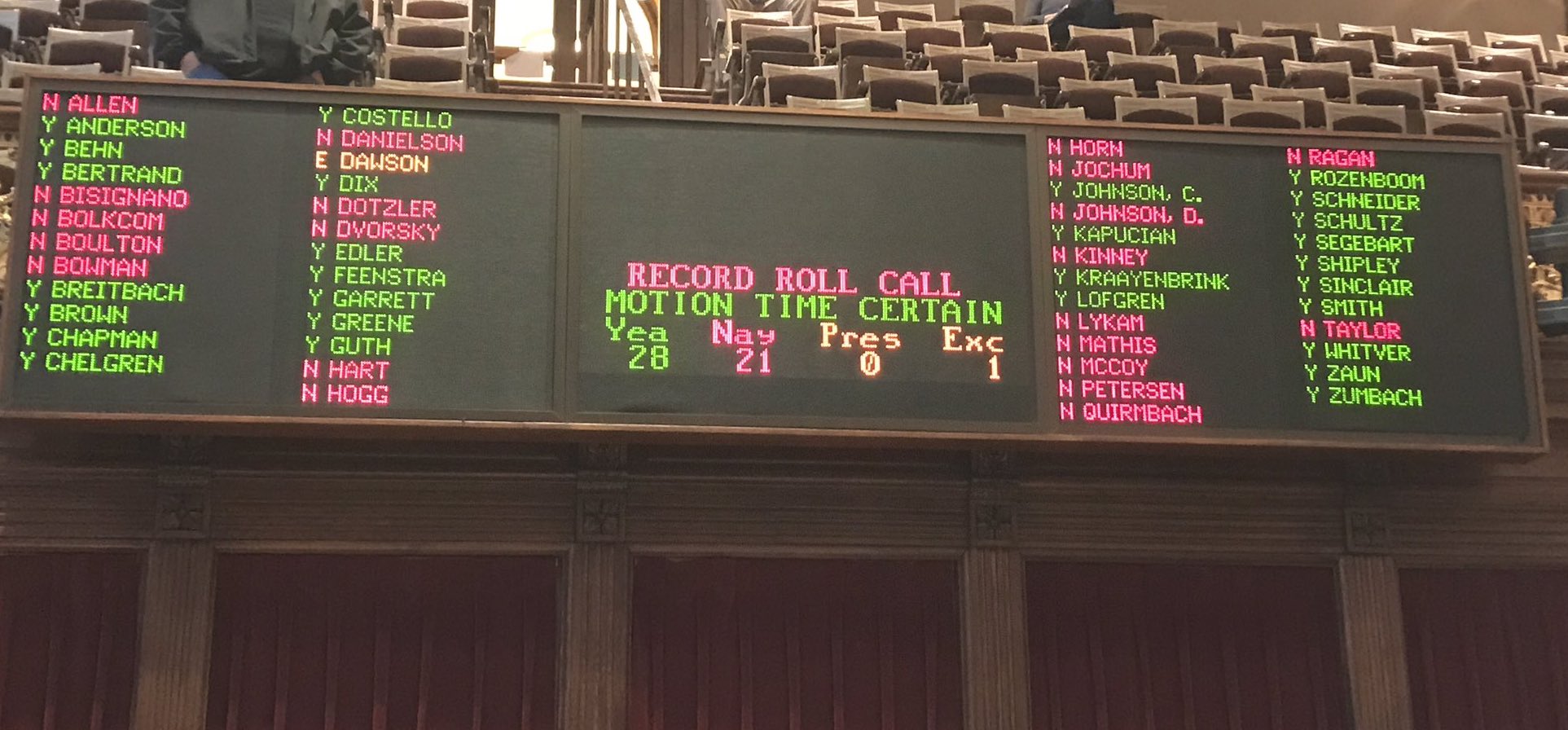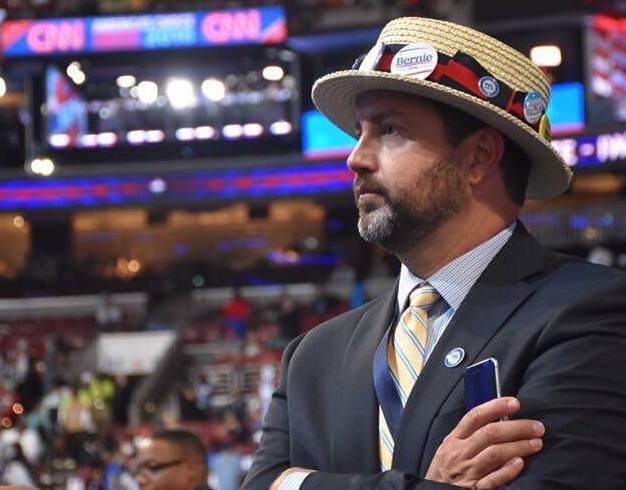A new bill that would have named a task force to study licensing requirements in Iowa will not move forward this legislative session, Republican State Representative Dawn Pettengill told representatives of the National Association of Social Workers Iowa chapter. House Study Bill 174 replaced an earlier proposal from Governor Terry Branstad, which would have eliminated licensing requirements for numerous professions. During the past week, House Study Bill 138 generated as many constituent contacts to Iowa lawmakers as the bill passed earlier this month to destroy collective bargaining rights. Among other things, the governor’s licensing bill would have reduced insurance coverage for mental health care services. On February 27, an Iowa House State Government subcommittee voted not to move that bill forward.
House State Government Committee Chair Ken Rizer introduced the replacement licensing bill on February 28. In addition to changing regulations in several other areas, House Study Bill 174 called for a new task force to review Iowa’s licensing requirements and report back to the legislature by the end of 2017.
Although Rizer’s bill would not have immediately affected marriage and family therapists, mental health counselors, or social workers, the leading association representing Iowa’s social workers expressed concern that “the taskforce as outlined would mostly be selected by the Governor, who has demonstrated that he wants to de-professionalize many different important professions that serve some of our most vulnerable populations.” (You can read the task force membership provisions on on page 37.) The social workers group was seeking an amendment to give licensed professionals greater influence over the task force membership. But last night, Pettengill–one of two Republicans on the subcommittee where the new bill was assigned–said House Study Bill 174 was dead.
Most non-appropriations bills must be approved by at least one Iowa House or Senate committee by March 3 in order to stay alive for this year. Bills need to clear a subcommittee before coming up for a full committee vote.
Whether the licensing task force language led to the new bill’s demise is not clear. The lobbyist declarations on House Study Bill 174 show substantial opposition, presumably related to other provisions on regulating hospitals and electricians.
P.S. Attention-seeking State Representative Bobby Kaufmann could have let the governor’s original licensing bill die quietly by not scheduling a subcommittee hearing, as is normal practice in the Iowa legislature. Instead, the publicity hound wasted a lot of people’s time before drawing cheers as he ripped up the bill’s cover sheet. Alas, television cameras had already left the meeting room before Kaufmann’s dramatic gesture. The young Republican lawmaker was literally not ready for prime time.























